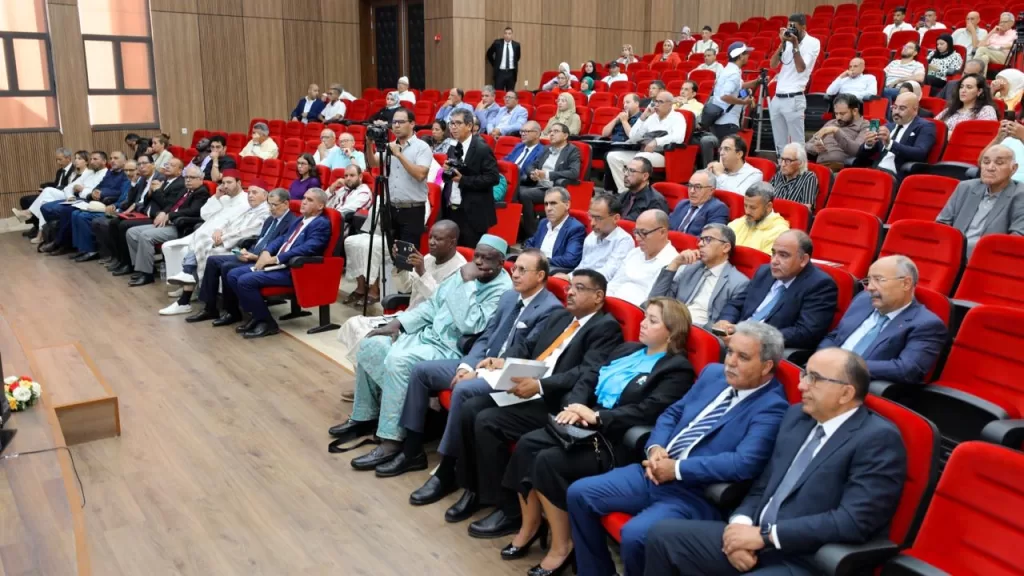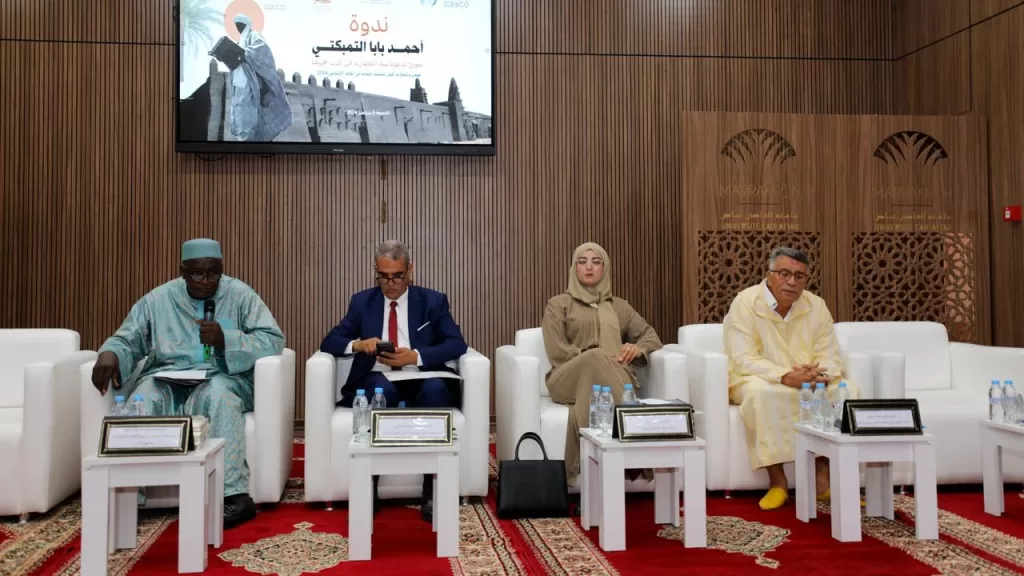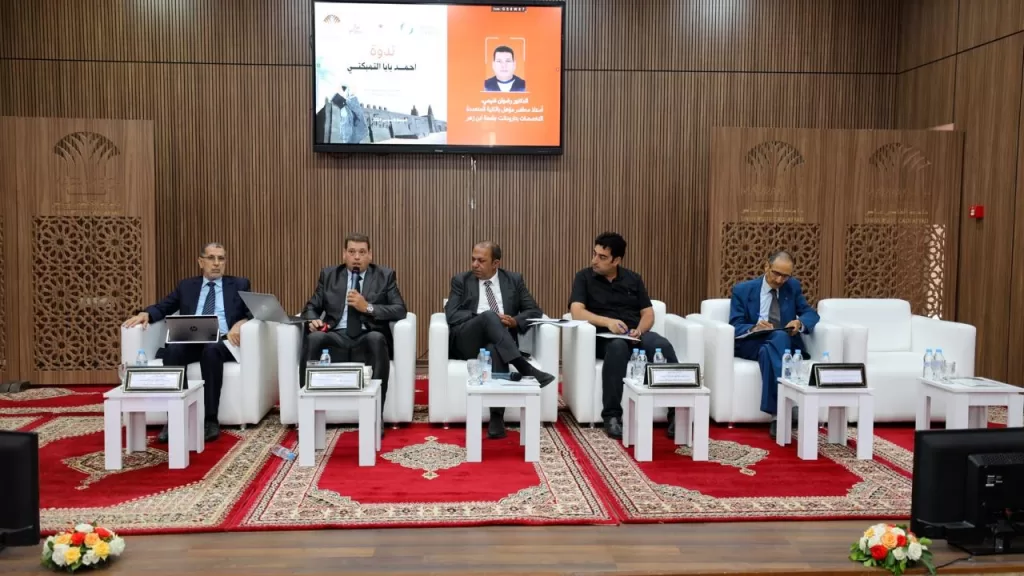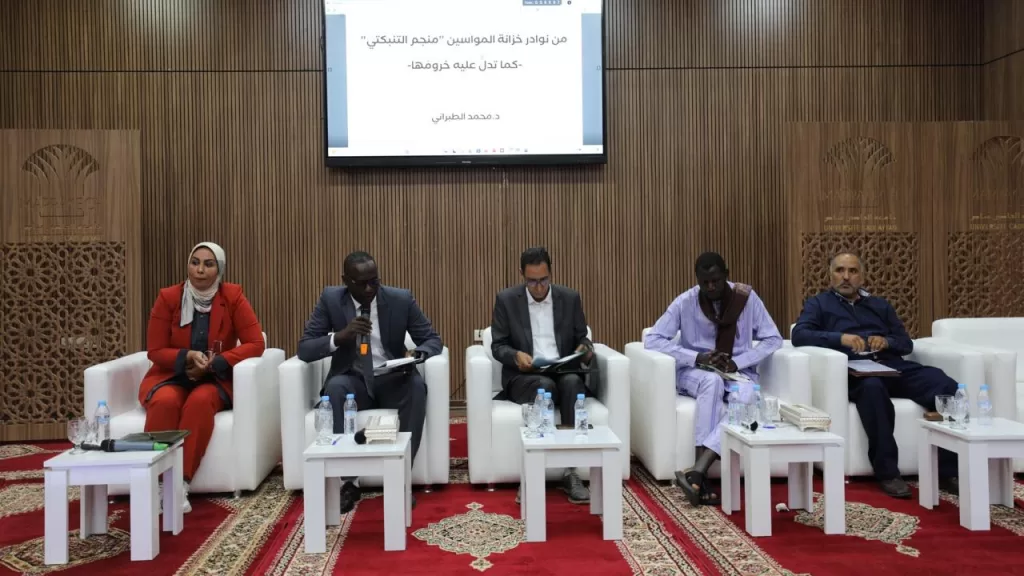
High-Level Attendance at ICESCO’s International Symposium in Marrakech: “Ahmad Baba Al Timbukti: A Model of Civilizational Diplomacy in West Africa”
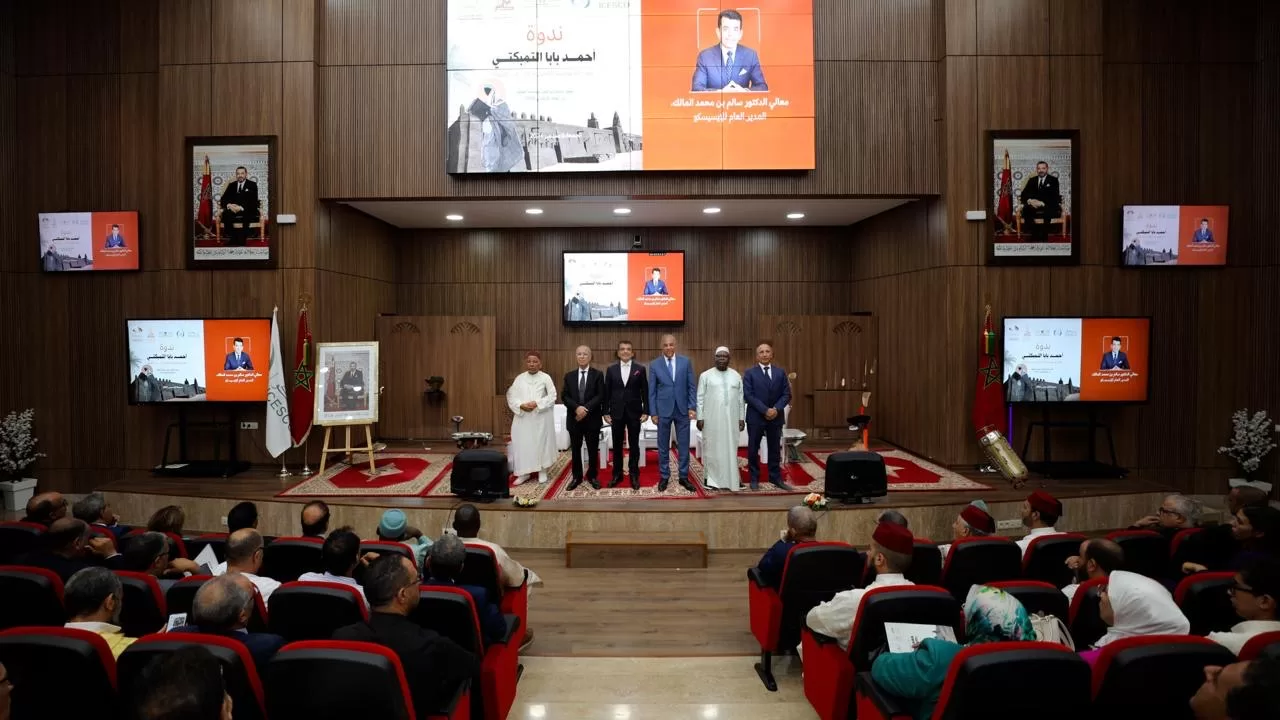
6 September 2024
The Islamic World Educational, Scientific, and Cultural Organization (ICESCO) held the international symposium titled “Ahmad Baba Al Timbukti: A Model of Civilizational Diplomacy in West Africa” today, Friday 6 September 2024, in partnership with Cadi Ayyad University in Marrakech, Morocco. The Event was attended by high-ranking officials, including ministers, senior officials, researchers, and university professors. The aim was to highlight the contributions of African scholars to the promotion of Islamic culture and to the renewal of its civilizational foundations. The Symposium particularly focused on the significant role played by the scholar Ahmad Baba Al Timbukti in this context.
The Symposium, hosted at the Cadi Ayyad University Conference Center in Marrakech, was part of the city’s celebration as the 2024 Culture Capital in the Islamic world. The opening session began with a recitation of verses from the Holy Quran, followed by an introductory speech by Ambassador Khalid Fathalrahman, Director of ICESCO’s Center for Civilizational Dialogue. He emphasized the importance of the Symposium’s theme and the deep historical connection between great cities and their renowned figures, noting that Ahmad Baba Al Timbukti epitomizes this unshakeable bond.
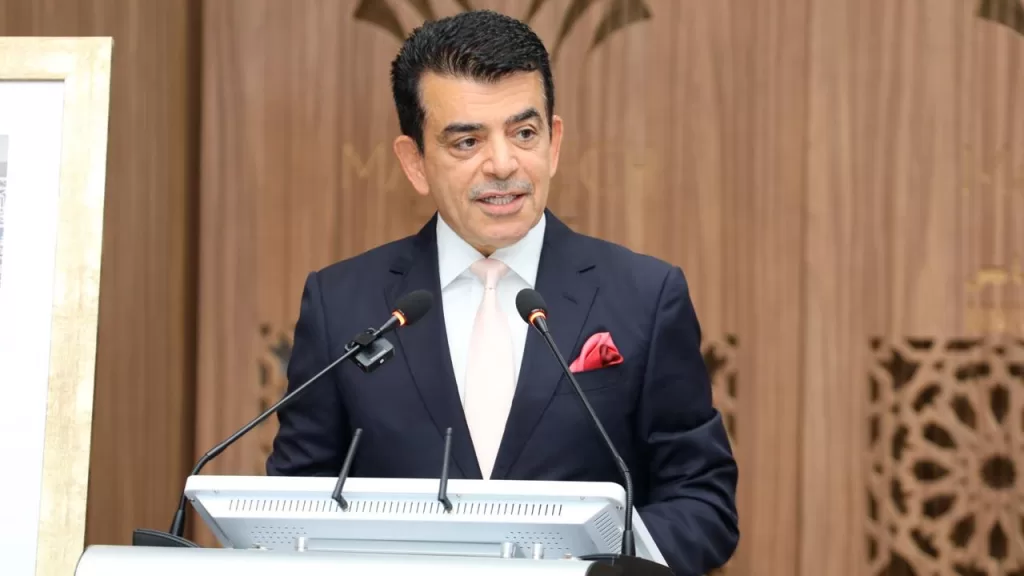
During his opening remarks, Dr. Salim M. AlMalik, Director-General of ICESCO, pointed out that the transformations happening across the world are necessary for creating a more just and peaceful global society. He highlighted the historical legacy of the African continent, symbolized by figures like Ahmad Baba Al Timbukti, as evidence of Africa’s reawakening.
Dr. AlMalik praised Ahmad Baba as a model of civilizational communication, noting how the city of Timbuktu in Mali embraced him and how Marrakech was the birthplace of many of his intellectual and literary works. This, he stated, confirms the Red City’s position at the forefront of creative fields associated with civilizational action characterized by tolerance; which ICESCO has innovatively termed “civilizational diplomacy.” He also announced the upcoming launch of the first academic chair on civilizational diplomacy at Cadi Ayyad University.
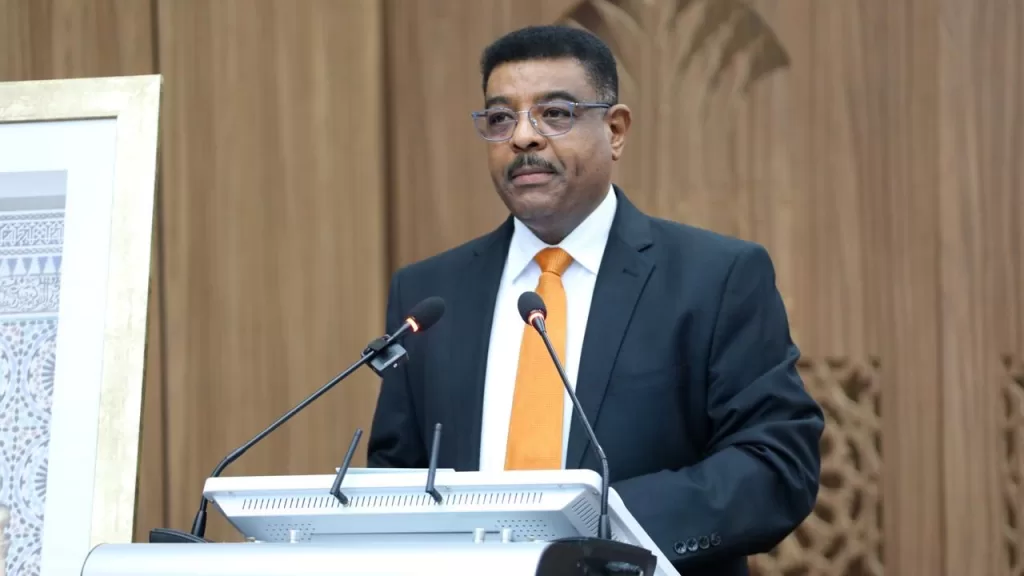
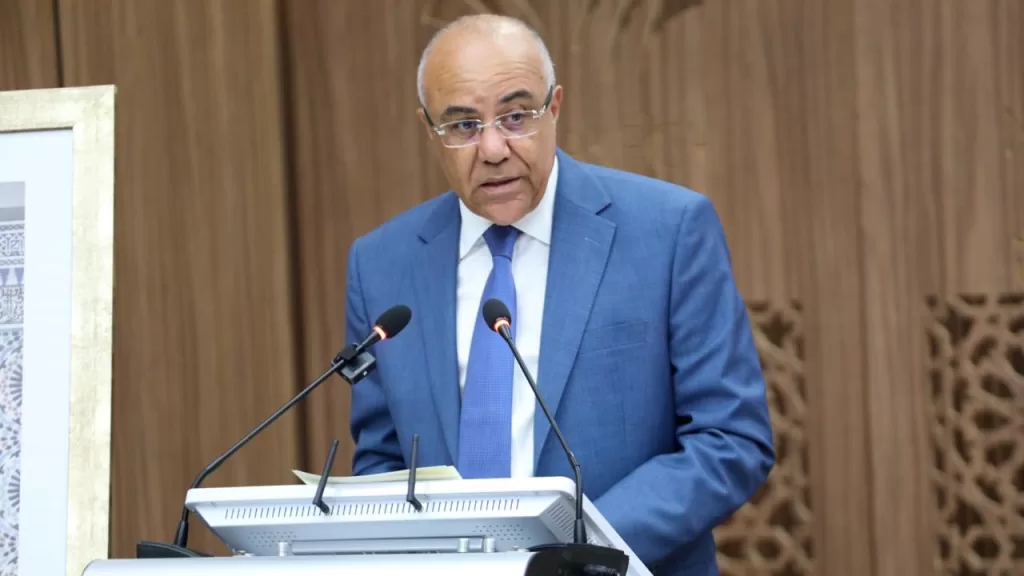
In his speech, Dr. Abdellatif Miraoui, the Moroccan Minister of Higher Education, Scientific Research, and Innovation, emphasized Morocco’s long-standing tradition of being a haven for distinguished African scholars. He added that the Ministry is especially committed to strengthening scientific collaboration with African nations, with more than 25,000 African students currently enrolled in Moroccan universities.
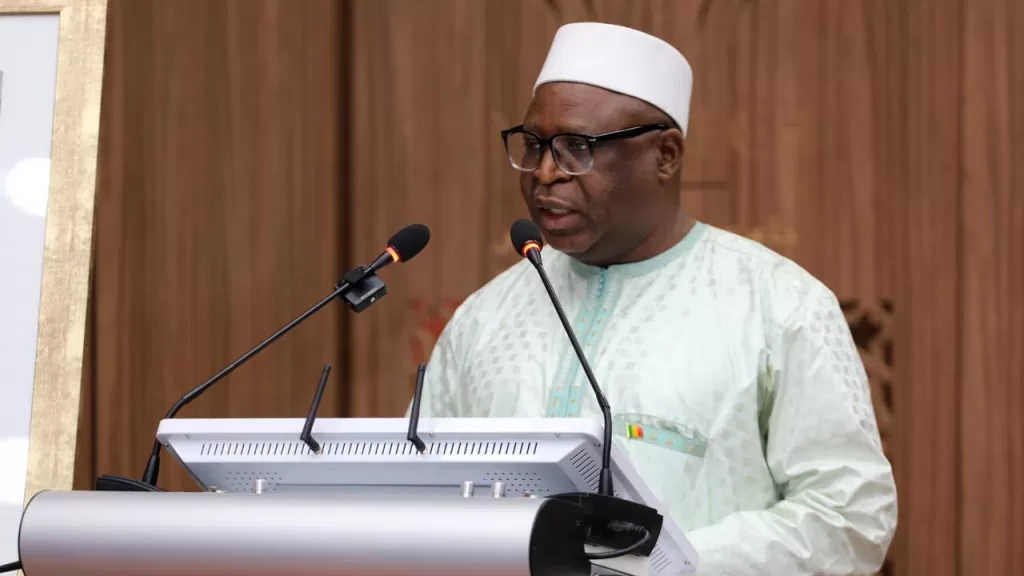
Professor Bouréma Kansaye, Minister of Higher Education and Scientific Research of the Republic of Mali, underlined that Ahmad Baba is a significant figure in Mali’s scientific and cultural history. He played a key role in enriching both Malian and Moroccan intellectual heritage.
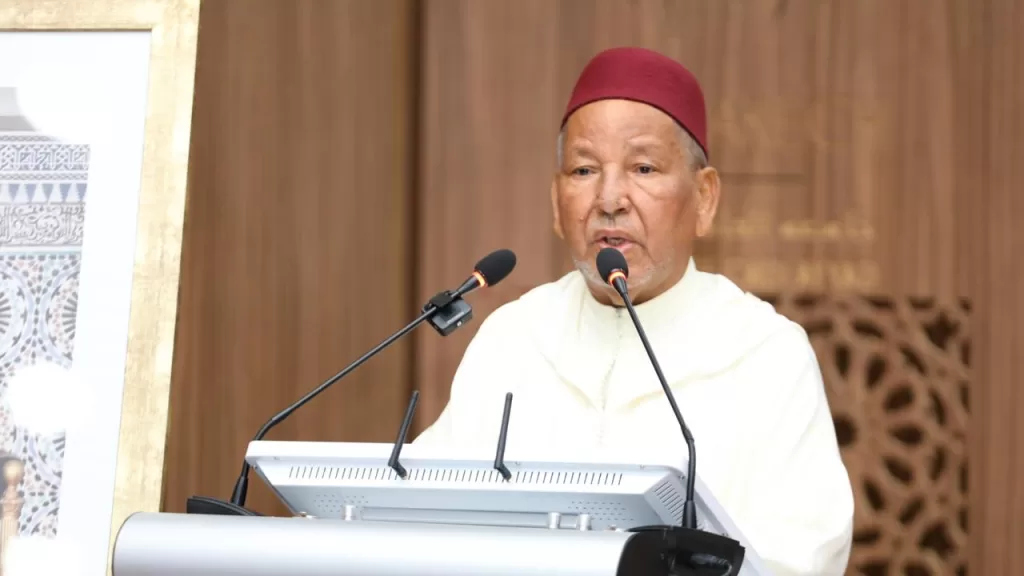
Mohamed Fadel, President of the Local Council of Scholars of Marrakech-Safi region, spoke of Ahmad Baba’s esteemed status, emphasizing that the body of his work remains an essential scientific reference. Dr. Blaïd Bougadir, President of Cadi Ayyad University, reiterated the university’s commitment to fostering scientific cooperation between Morocco and African nations.
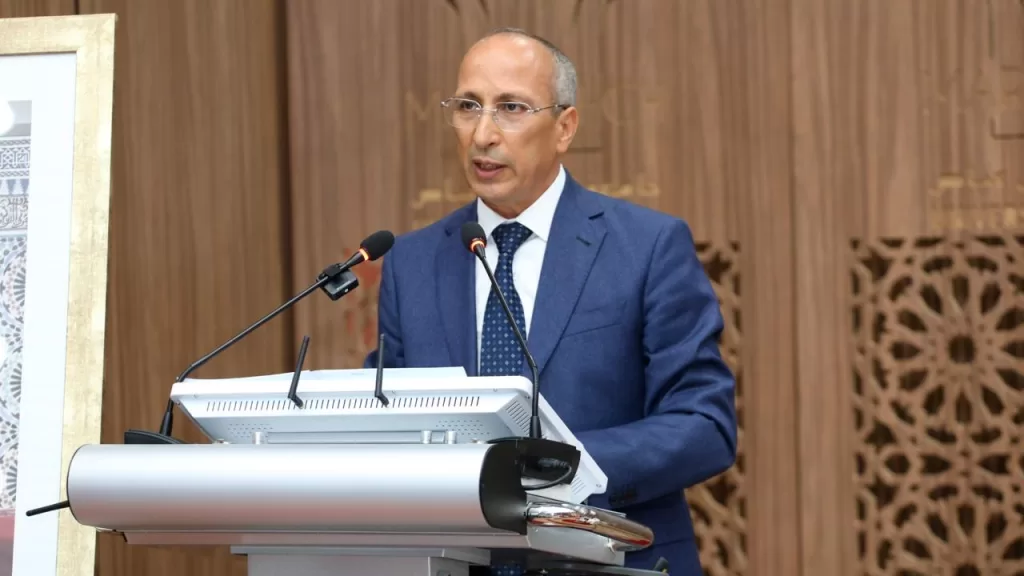
The opening session concluded with remarks by Dr. Ahmed Toufiq, Morocco’s Minister of Endowments and Islamic Affairs. He highlighted Ahmad Baba’s scholarly journey, which spanned Timbuktu, Marrakech, the Sahel, and the African Sahara, and discussed the biographies written about his life. Dr. Toufiq also mentioned his ministry’s efforts to preserve Ahmad Baba’s legacy in Marrakech.
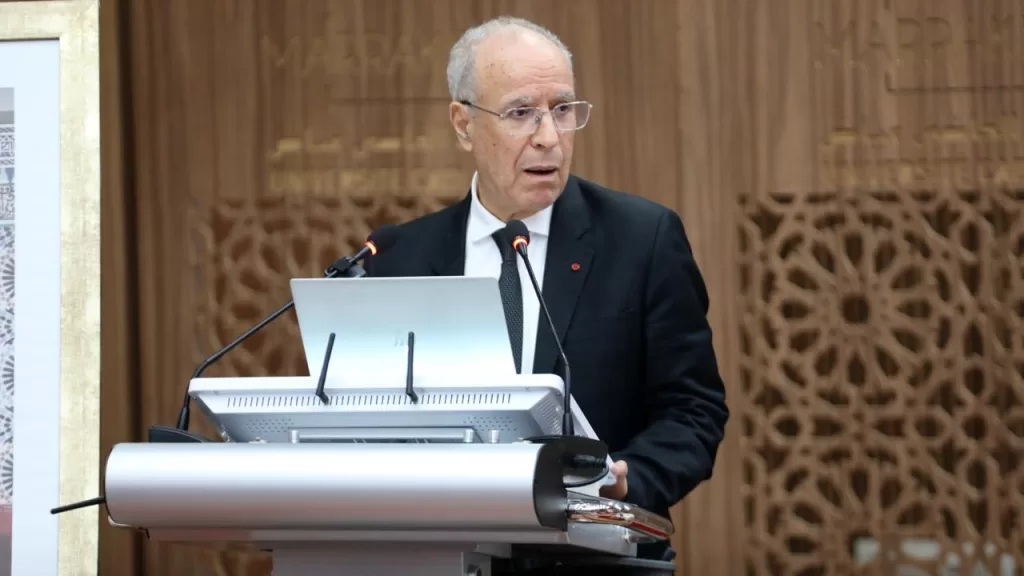
Following that, the first session of the symposium began, focusing on the Moroccan influence in the intellectual formation of Ahmad Al Timbukti. This was followed by the second session, which discussed civilizational communication between Moroccans and Sub-Saharan Africa. The third session, titled “Cultural and Social Communication between North and Sub-Saharan Africa,” then took place.
